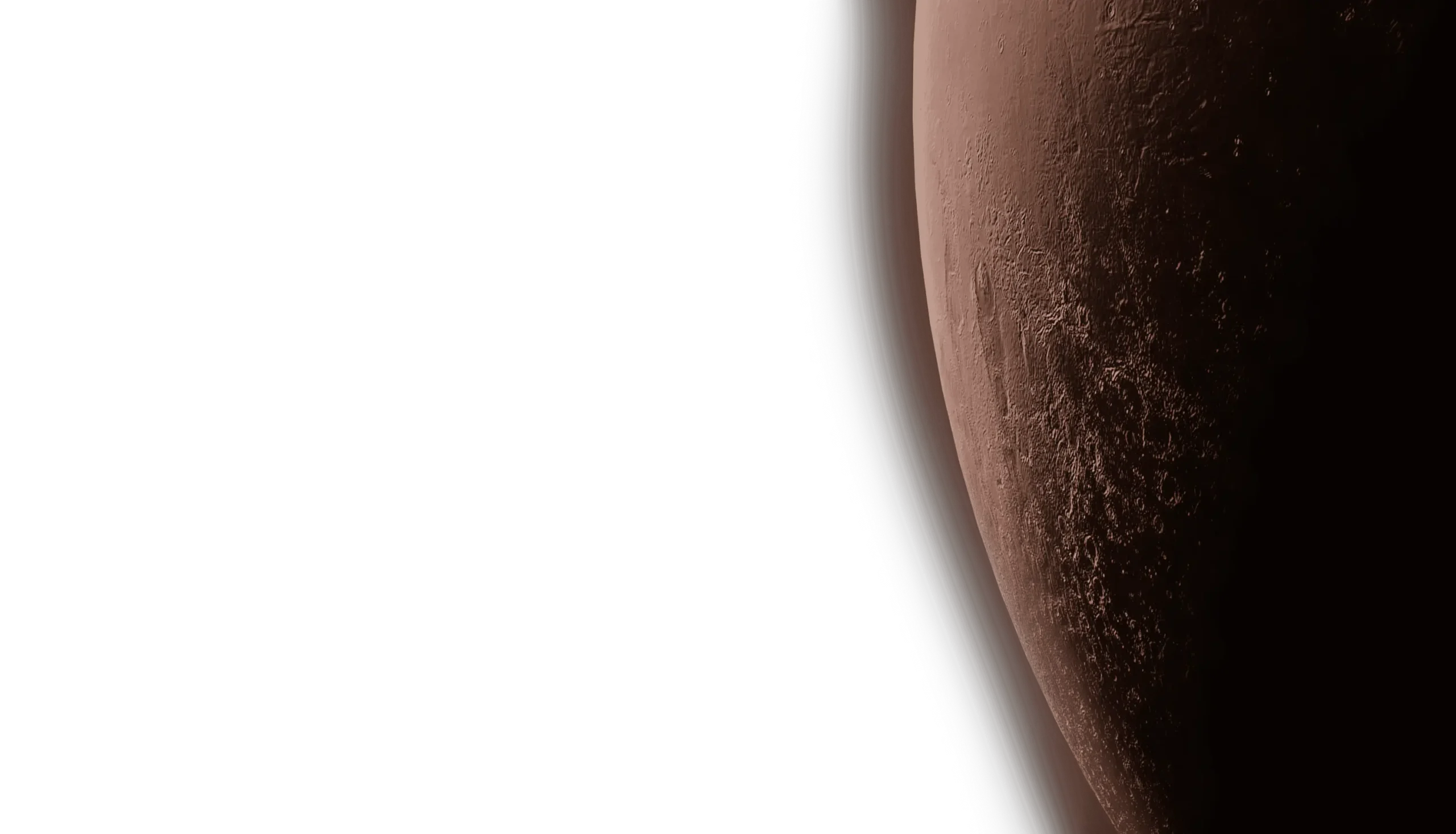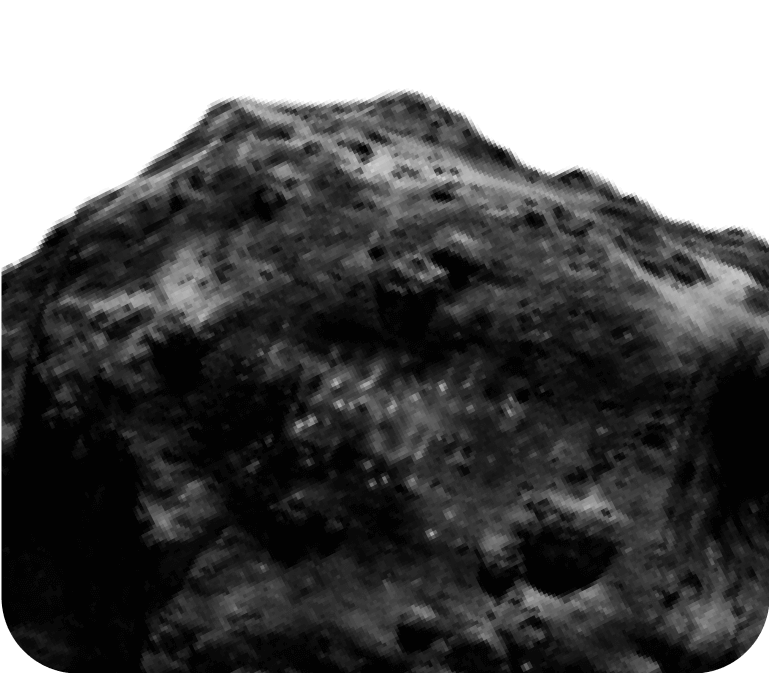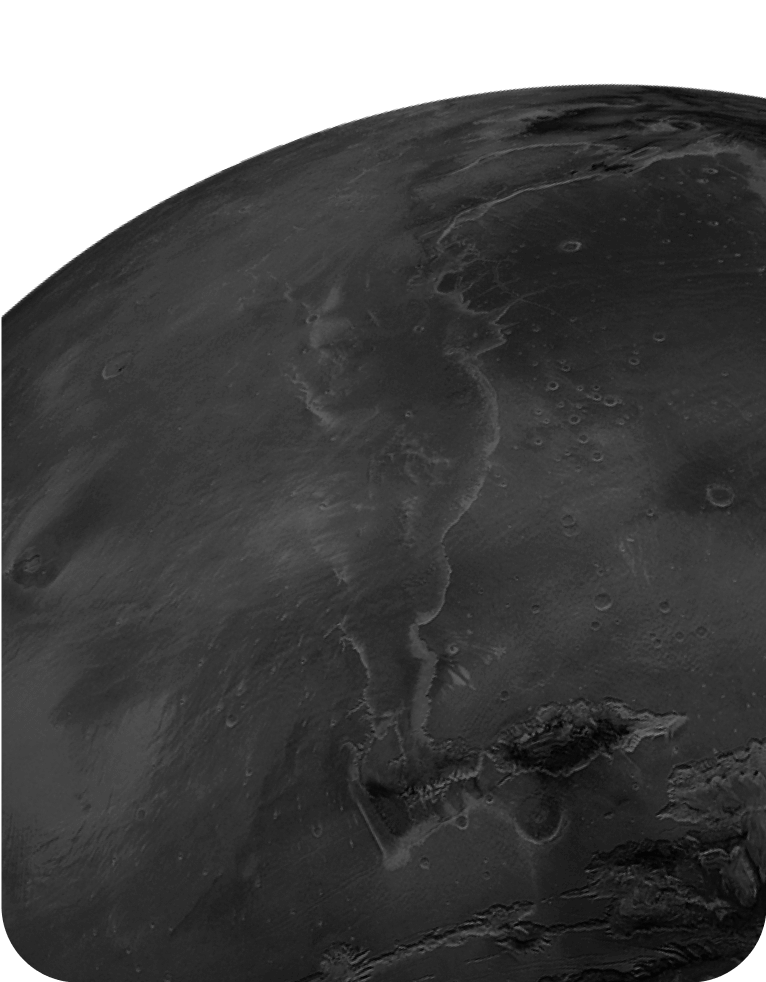
master
in space
systems
The new space industry is experiencing a period of massive growth and diversification, both in terms of technological advancements and market dynamics. The specialised Master in Space Systems offers students the opportunity to enter this dynamic environment
Apply for the Master in Space SystemsAbout the master programme
The new Specialised Master's degree programme in Space Systems was launched in September 2024.
We place particular value on diversity of educational background, to combine strong teaching of engineering skills with a deep understanding of scientific and economic motivations of space exploration. The students will learn together in three dedicated core courses, while elective courses include all of earth and planetary science, physics, mechanical and electrical engineering, and geodesy.
You will use the skills acquired in the first two semesters for an extended case study of a space mission, spacecraft or an instrument in space, evaluated by domain experts from ETH, space agencies and industry to become accustomed to the formal review process of space projects. A Master’s thesis can be written at any of the four
participating departments (D-EAPS, D-ITET, D-MAVT, D-PHYS) or in the industry.

“I want to launch one of the world's best interdisciplinary master's degree programmes in space science and technology in order to train the next generation of space leaders.”
Thomas Zurbuchen, ETH Professor of Space Science and Technology
structure of the
programme
The programme is designed to integrate the field of science and engineering, bringing together students from various backgrounds. This mix of perspectives enhances performance by bringing together diverse mindsets.

curriculum
Semester 1
CC1: Space System Engineering (14 credits)
2 full days a week block courses
Semester 2
CC2: Space<
Data (8 credits)
4 x 1 month-long
data classes
Semester 3
CC3: Case Studies and Team Projects (10 credits)
Including review
process
Scientific Introductory Courses (at least 8 credits)
- Introduction to Planetary Science
- The Physics of Space Weather
- Earth Observation
- Electronics for Physicists I (Analogue)
- Orbital Dynamics
- Radiation and Climate Change
Deep Track / Specialisation (20-30 credits)
- Aerospace Engineering (D-MAVT)
- Earth Observation (D-EAPS / D-BAUG)
- Planetary Science (D-EAPS / D-PHYS)
- Robotics (D-MAVT)
- Space Communication (D-ITET)

Electives (>16 credits)
Science in Perspective / Wissenschaft im Kontext (>2 credits)
semester 4
MASTER’S THESIS
Individually or as group project in industry, agency or at ETH (30 credits)

By the end of the first year, students from diverse backgrounds will have developed a shared comprehension of the principles underlying both science and engineering. This is ensured through an initial core course and the scientific introductory courses. While all core courses must be attended, students must complete at least 8 credits within the scientific introductory courses, allowing them to tailor their choice to complement their previous education. A range of elective courses allows students to further explore interdisciplinary concepts.
During the second and third semester, students engage with their selected deep track, acquiring specialised expertise based on their personalised study plan designed at the beginning of their studies together with their tutor.
The third core course completes the training, focusing on interdisciplinary team project work. Through this course, students prepare for their Master’s thesis, which they can undertake individually or as a group work. The Master’s thesis can be written either at ETH or in the industry.
With their diverse backgrounds and perspectives, students enrich each other’s learning experience. This interdisciplinary approach maximises the potential of each student, creating an environment that brings out innovative ideas.
ready for takeoff?
Swiss students: The application for Master's degree programmes with start
in the Autumn Semester 2026 opens on 1 April 2026.
International students: The application for Master's degree programmes with start
in the Autumn Semester 2026 opens in November 2025.
Bachelor’s
programmes
ETH Zurich has 17 Bachelor’s programs, many of which touch upon space-related topics.
The Bachelor in Earth and Climate Sciences teaches to use data to explore the deep interior of the earth and planets and to use satellite data for climate research. The Bachelor in Physics contains modules on astrophysics, electrodynamics and special theory of relativity.
If you study in the Bachelors in Mechanical Engineering, you learn how to design and control a system or robot;
Electrical Engineering touches upon communications and robust design of electronic circuits.
The Bachelor Geospatial Engineering uses satellite data for navigation and geodesy. All of these B.Sc. degrees prepare for an application into the M.Sc. program in Space Systems, which teaches engineers and scientists how to design a spacecraft and a space mission.
Space-Related Courses
Many courses at ETH cover topics relevant for space missions and can be selected as an elective in most degrees. This continuously updated list can serve as a guideline.
Note that some of the courses may depend on the completion of prerequisite lectures.
ETH Zurich and Space
Initiatives in Switzerland
For an overview of national initiatives, as well as universities with groups doing space research in Switzerland, check out the document
Map Swiss Space Ecosystem.
Please contact us if something is missing.

Student space association led by ETH students, working on rockets, cubesats, propulsion systems, and other space related projects.
faq - frequently asked questions
FAQs about admission, curriculum, and research in our new Master's degree programme in Space Systems, addressing the most common queries from prospective students.
If you don’t find the answer you’re looking for below, it is likely that it has already been addressed in the FAQ Master’s application or in the general FAQ from ETH academic services for ETH students.
Open all
Please refer to structure of the programme.
Yes, the instruction language of all Master’s programmes at ETH Zurich is English.
Graduates of a Swiss university of applied sciences (Fachhochschule) may be required to attend additional lectures in German.
All students are required to establish a learning agreement at the start of their studies. This agreement will be discussed with and must be approved by the tutor of the chosen deep track.
Elective courses can be selected from the complete offerings of ETH Zurich. However, it is advisable to choose courses from the MSc in Space Systems curriculum. Certain deep tracks also provide a list of recommended elective courses.
If you have any courses from your BSc studies at ETH that were not included in your BSc degree, you can potentially count up to 1-2 courses (equivalent of 4-6 ECTS) towards your MSc degree. These courses must be advanced BSc courses (usually from the 3rd year) and need to be approved by your tutor, as they must be part of your learning agreement.
Credits earned at ETH Zurich can only be transferred if they haven’t already been used for an academic degree and the number of transferable credits is limited. However, there is no entitlement to credit transfer.
Since the Master’s programme involves team-based project work taught through full-day block courses, students must attend in person, making part-time study not possible.
No, the Master’s thesis topic is determined during the programme (in the third semester).
The curriculum of the new programme is already heavily project-focused, with the third core course designed as a project-based course. Therefore, elective courses should be chosen from the recommended list of the deep track, as they are designed to enhance “theoretical” subject-specific expertise within that track.
We are not foreseeing internships in the first round of the programme, but the Master’s thesis can be conducted in collaboration with external companies.
Space research at ETH Zurich is done by the individual institutes, laboratories,
and professorships. Hence, they have to be contacted directly. ETH Zürich | Space does not carry out any projects and
therefore does not offer any Master’s thesis or research positions.
The brochure Download Overview of space activities at ETH Zurich (PDF, 982 KB) gives an overview of the research groups involved in space projects at ETH Zurich. If you do not find your topic of interest, we recommend checking out the list of institutes in each department.
- Department of Earth and Planetary Sciences (D-EAPS)
- Department of Information Technology and Electrical Engineering (D-ITET)
- Department of Mechanical and Process Engineering (D-MAVT)
- Department of Physics (D-PHYS)
- Department of Civil, Environmental and Geomatic Engineering (D-BAUG)
- Department of Computer Science (D-INFK)
Further opportunities might also be available within one of the ETH Competence Centres. If you still cannot find your topic, please get in touch with us via email. You will need to specify what you are looking for exactly (thesis type), what topic you are interested in, where it could be carried out, and the proposed start/duration of the project.
General questions regarding application or admission.
If you don’t find the answer you’re looking for below, it is likely that it has already been addressed in the FAQ Master’s application on the ETH website.
Open all
The Master in Space Systems is designed to integrate the field of science and engineering, bringing together students
from various backgrounds. This mix of perspectives enhances performance by bringing together diverse mindsets. We
place an emphasis on systems, science and data, and sustainability.
- Future space engineers and leaders need to be able to think in systems: how to integrate subsystems and their
requirements efficiently. - They need to understand the science behind space exploration and use data efficiently: to iterate designs, but
also to build downstream use cases. - Space exploration needs to be sustainable: Switzerland and Europe can lead research and implementation of
sustainable usage of space.
ETH Zurich offers two Master’s application windows: an early one for all applicants with an international Bachelor’s
degree and a second one only open to candidates with a Bachelor’s degree from a Swiss university.
Since the Master in Space Systems is a specialised Master’s programme, all interested students must apply.
Admission to the degree programme requires a university Bachelor’s degree of at least 180 ECTS, an equivalent
university degree or a Bachelor’s degree from a Swiss university of applied sciences.
Attendance of the degree programme require basic knowledge and skills in the disciplines of mathematics and physics,
which must be equivalent to those taught at ETH Zurich.
Details are published in the Download requirement profile (PDF, 128 KB) of the programme.
Yes, please refer to the specific requirements of the programme.
If your prior education does not exactly meet the requirements but your previous academic performance was excellent,
you may be admitted with additional requirements. The specific additional requirements are determined during the
acceptance procedure and communicated in the admission letter.
Additional requirements cannot exceed a specified maximum number of credits, which is defined in the specific requirements of the programme.
The holistic evaluation takes into account all the elements of your application, such as: the performance in the
undergraduate programme, the ranking of the university, the background in the chosen field of study, the scores in
standardized tests (like GRE), the letter of motivation and recommendations. All these facts will be assessed by the
members of the Admission Committee in their decision-making.
If you have questions regarding formal admission prerequisites that are not answered in the FAQ Master’s studies and
application please contact the Admissions Office.
Admission to the degree programme requires very good academic performance in the previous study programme. The
performance-related requirements for admission are defined in the Download requirements profile of the programme (PDF, 128 KB).
GRE is not required.
In addition to tuition fees and semester fees, most importantly there are Download living costs (PDF, 114 KB) to consider too.





